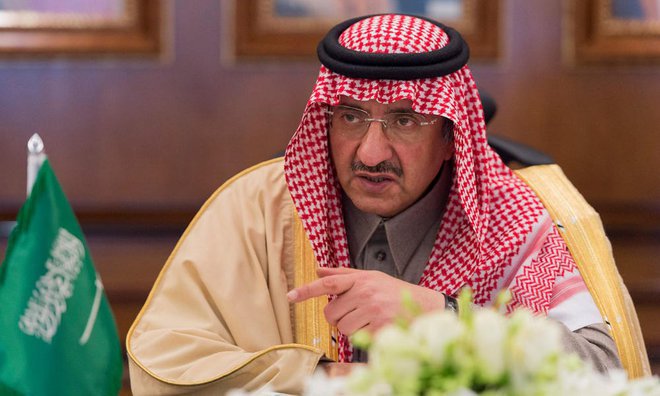
Crown prince praises SABIC efforts to help drug addicts
Crown Prince Mohammed bin Naif, deputy premier and minister of interior, has expressed thanks and appreciation to the Saudi Basic Industries Corp. (SABIC), represented by Prince Saud bin Abdullah bin Thunayyan, for its initiative and donation to build a hospital for treatment of drug addicts at a cost of SR300 million.
The crown prince, who is also the president of the National Committee of Narcotics Control (NCNC), also thanked SABIC for a SR15 million donation for a rehabilitation center for drug addicts, fulfilling its corporate responsibility for the protection of the community from the scourge of drugs, and the spread of preventive awareness against this scourge, as well as treatment and rehabilitation of drugs addicts.
He also expressed thanks to the president of Maan Specialized Medical Co., Abdullah bin Mohammed Al-Sharqi, and President of the Rehabilitation Specialized Medical Co. Abdulqadir bin Nasir Al-Obaikan for their national initiative to build two hospitals for drug addicts in Riyadh and Taif at the cost of SR100 million for each.
The crown prince praised their sense of social responsibility and contributions to the treatment of those who are the victims of drug addiction and their rehabilitation socially and psychologically.
He expressed hope that these works will be a good base in achieving the desired goals for the best interest of homeland and citizens, adding that such initiatives were normal and not surprising from the citizens of this country.
For his part, Secretary-General of NCNC and head of the National Project for the Prevention of Narcotics (Nibras) Abdulilah bin Mohammed Al-Sharif said these social initiatives are part of the national strategy concerning social responsibility and combating narcotics.
The businessmen’s initiatives are a translation of true citizenship in the context of social responsibility, in line with community needs and its strategic objectives and joint action in the face of drugs from security, preventive and treatment perspectives, as well as coordinated efforts between government and private bodies concerned with fighting drugs, he said.


























